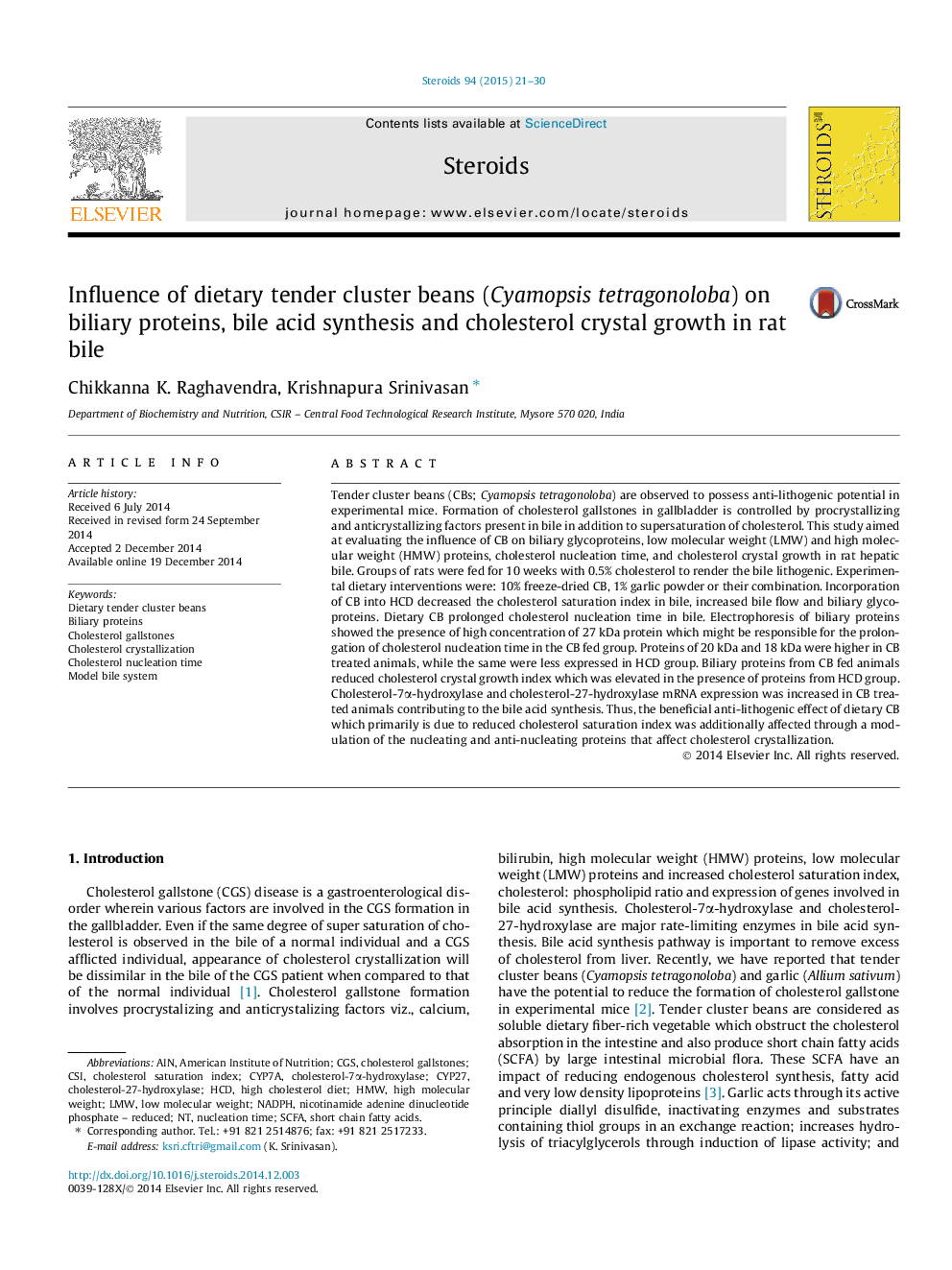| Article ID | Journal | Published Year | Pages | File Type |
|---|---|---|---|---|
| 2027856 | Steroids | 2015 | 10 Pages |
•Dietary tender cluster beans (CBs) reduced cholesterol saturation index in rat bile.•Dietary CB prolonged cholesterol nucleation time in rat bile.•High concentration of 28 kDa protein was seen in the bile of CB fed rats.•CB thus affected biliary proteins that influence cholesterol crystallization.
Tender cluster beans (CBs; Cyamopsis tetragonoloba) are observed to possess anti-lithogenic potential in experimental mice. Formation of cholesterol gallstones in gallbladder is controlled by procrystallizing and anticrystallizing factors present in bile in addition to supersaturation of cholesterol. This study aimed at evaluating the influence of CB on biliary glycoproteins, low molecular weight (LMW) and high molecular weight (HMW) proteins, cholesterol nucleation time, and cholesterol crystal growth in rat hepatic bile. Groups of rats were fed for 10 weeks with 0.5% cholesterol to render the bile lithogenic. Experimental dietary interventions were: 10% freeze-dried CB, 1% garlic powder or their combination. Incorporation of CB into HCD decreased the cholesterol saturation index in bile, increased bile flow and biliary glycoproteins. Dietary CB prolonged cholesterol nucleation time in bile. Electrophoresis of biliary proteins showed the presence of high concentration of 27 kDa protein which might be responsible for the prolongation of cholesterol nucleation time in the CB fed group. Proteins of 20 kDa and 18 kDa were higher in CB treated animals, while the same were less expressed in HCD group. Biliary proteins from CB fed animals reduced cholesterol crystal growth index which was elevated in the presence of proteins from HCD group. Cholesterol-7α-hydroxylase and cholesterol-27-hydroxylase mRNA expression was increased in CB treated animals contributing to the bile acid synthesis. Thus, the beneficial anti-lithogenic effect of dietary CB which primarily is due to reduced cholesterol saturation index was additionally affected through a modulation of the nucleating and anti-nucleating proteins that affect cholesterol crystallization.
Graphical abstractFigure optionsDownload full-size imageDownload as PowerPoint slide
